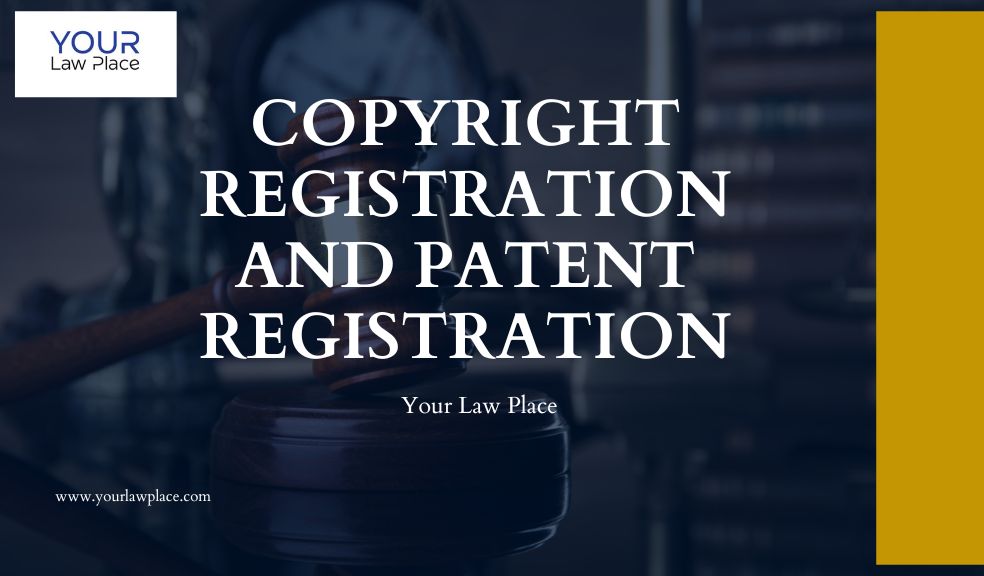In the rapidly evolving world of business and innovation, protecting your intellectual property (IP) has become crucial. Copyrights and patents are two of the most common ways to safeguard creations, whether they are artistic works or new inventions. While the terms might sound similar, copyright registration and patent registration serve distinct purposes in protecting different forms of intellectual property. This article explores the importance of both and why registration is a vital step for creators, inventors, and businesses.
What is Copyright Registration?
Copyright is a legal right granted to the creators of original works, giving them exclusive rights to use, distribute, and reproduce their creations. These works can include literature, art, music, software, films, and other creative products.
Why is Copyright Registration Necessary?
While copyright protection is granted automatically as soon as a work is created, registering your copyright with the appropriate authorities offers several significant advantages:
- Proof of Ownership – Registration serves as legal proof of ownership in case of disputes or infringements.
- Public Notice – By registering your work, you provide notice to the public that your creation is protected.
- Exclusive Rights – With registration, you are entitled to certain exclusive rights such as the ability to license or transfer the work.
- Legal Remedies – Registered copyrights allow you to seek statutory damages and attorney’s fees in case of infringement.
The Process of Copyright Registration
The process of registering a copyright typically involves submitting an application to a government body such as the Copyright Office. The application includes details about the work, its creator, and its intended use. Once registered, the copyright holder is granted the exclusive rights to the work for a specific period, typically lasting the life of the author plus an additional 70 years.
What is Patent Registration?
A patent is a form of intellectual property that grants exclusive rights to inventors over their inventions. In essence, a patent registration allows the inventor to prevent others from making, using, or selling their invention without permission.
Why Patent Registration is Essential
Patent registration is particularly important for protecting technological innovations, new products, and industrial designs. The primary reasons for obtaining a patent include:
- Exclusive Rights – A registered patent ensures that only the inventor or their assignee can exploit the invention commercially.
- Protection from Imitation – Once registered, a patent helps protect against copying, counterfeiting, and the unauthorised use of the invention.
- Increased Market Value – Patents can significantly enhance the commercial value of an invention, attracting potential investors, partners, or licensing deals.
- Legal Enforcement – A granted patent provides a legal framework for enforcing rights in court if the invention is infringed upon.
The Patent Registration Process
Patent registration is a more complex process than copyright registration. It typically involves:
- Patent Search – Before applying, a patent search is conducted to ensure the invention is novel and has not been patented by someone else.
- Filing the Application – The inventor submits a detailed application outlining the invention's purpose, design, and function.
- Examination – The application is examined by the relevant patent office to assess its novelty, utility, and originality.
- Granting of Patent – Once the application is approved, the patent is granted for a specific duration, often 20 years from the filing date.
Key Differences Between Copyright and Patent Registration
Copyright and patent protections differ significantly in terms of their scope and application. Copyright provides protection for creative works such as literature, music, and art, automatically granting rights upon creation, with protection typically lasting for the creator’s lifetime plus 70 years. It gives the creator exclusive rights to reproduce, distribute, and display the work. In contrast, patent protection applies to inventions, processes, or products and requires registration. Once granted, a patent gives exclusive rights to manufacture, use, or sell the invention for 20 years from the filing date. The process for copyright registration involves filling out an application with the relevant copyright office, whereas patent registration involves a more complex process, including an application, search, and examination. While copyright protection is automatic upon creation, patent protection requires formal registration before the inventor gains legal rights to their invention.
Benefits of Intellectual Property Registration
Both copyright registration and patent registration offer critical protection for creators and businesses. The benefits go beyond just legal protection; they are also strategic tools for growth and success. Here’s why registration is important:
- Prevents Theft and Infringement – By registering your intellectual property, you minimise the risk of others stealing or copying your work.
- Enhances Credibility – Registered intellectual property adds credibility to your work, which is particularly beneficial when dealing with clients, investors, or partners.
- Monetisation Opportunities – A registered patent or copyright can be licensed or sold, opening avenues for additional income streams.
- Supports Innovation – By ensuring that creators and inventors retain ownership and control, registration encourages ongoing innovation and creativity.
Conclusion
Both copyright registration and patent registration are essential steps for safeguarding intellectual property. They provide legal protection, enhance the value of creations, and offer opportunities for commercial growth. Whether you are an artist, software developer, or inventor, securing your intellectual property ensures that your innovations are protected, giving you the peace of mind to focus on what matters most—creating, innovating, and growing.
By taking the time to register your intellectual property, you are not only protecting your work but also investing in your future success. If you’re looking to protect your creations or inventions, consulting a legal professional for copyright and patent registration is a crucial first step.






Comments